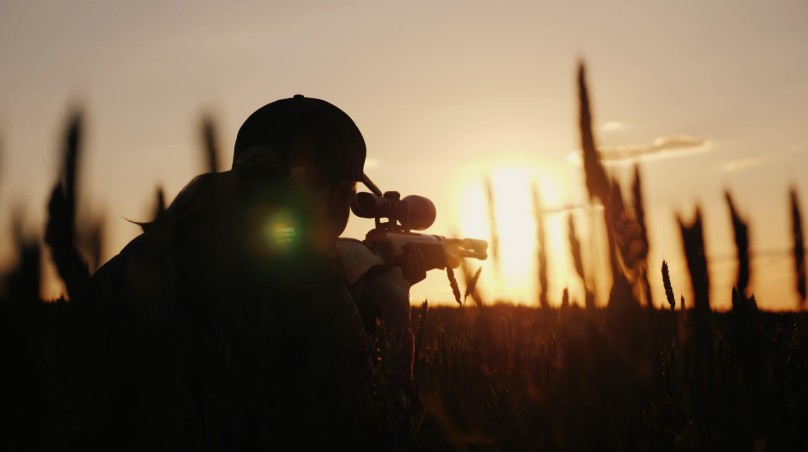In the heart of the wilderness, a hunter waits.
Still.
Silent.
Intent.
Every movement is calculated, every decision informed by an understanding of the environment, the behavior of the prey, and the hunter’s own limitations. It’s not unlike the world of business strategy and consulting, where success is often dictated not by how fast you move, but by how well you understand your surroundings, how prepared you are, and how patiently you wait for the right moment to act.
Hunting, at its core, is not just about the harvest—it’s about preparation, observation, resilience, and timing. The lessons learned in the woods can be surprisingly relevant in boardrooms, brainstorming sessions, and high-stakes negotiations. Chad Sehlke emphasizes that whether you’re an entrepreneur launching a new venture or a consultant guiding organizations through complex challenges, the principles of hunting offer powerful metaphors for strategic thinking and long-term success.
1. Patience Over Impulsiveness: Waiting for the Right Shot
One of the most critical skills in hunting is knowing when not to pull the trigger. A hunter may sit in a blind for hours—or even days—waiting for the right opportunity. Acting too soon risks scaring away the prey. Acting too late means the opportunity vanishes. This lesson applies directly to entrepreneurship and consulting: not every opportunity is worth pursuing, and the best ones often require discipline and restraint.
In business, there’s a temptation to move quickly, to chase every trend, or to make snap decisions under pressure. But real strategy involves knowing when to wait. A product launch, a new hire, a merger—these are all “shots” that must be timed precisely. Rushing can destroy value; patience can preserve it.
As a consultant, recommending bold moves without fully understanding a company’s culture, timing, or readiness can backfire. Like a hunter studying the habits of deer at dawn, the best consultants observe patterns, assess risks, and wait for the opening that offers the greatest potential with the least resistance.
2. Preparation is Everything: You Can’t Fake Readiness
Before a hunter ever sets foot in the forest, preparation begins. Scouting the area. Checking the wind. Testing gear. Understanding the season. Knowing local regulations. Every variable matters—and missing one can mean failure or danger.
Entrepreneurs and consultants need the same mindset. Preparation isn’t glamorous, but it’s essential. Market research, competitive analysis, supply chain assessments, customer feedback—these are the tools of the trade. The more thorough your preparation, the more effective your execution.
In consulting, thorough preparation means understanding the client’s business inside and out before making recommendations. It means interviewing stakeholders, gathering data, and identifying both the root causes of problems and the hidden opportunities others might miss.
As in hunting, where conditions can change without notice, your preparation needs to include scenario planning. What happens if the target moves? If the weather turns? If your gear fails? Similarly, in business, what if the market shifts? If funding falls through? If the competition outflanks you? Preparation doesn’t eliminate risk, but it improves your odds.
3. Adaptability: Reading the Wind and Changing Your Approach
In the woods, conditions are rarely perfect. The wind shifts. The light changes. The prey moves differently than expected. Successful hunters adapt. They reposition. They change tactics. They may even leave and return another day.
In business, conditions also shift—often without warning. COVID-19, technological disruption, changing regulations, or consumer behavior—all can render a strategy obsolete overnight. Adaptability is not just a survival skill; it’s a growth strategy.
Entrepreneurs must be willing to pivot when the data or the environment calls for it. Consultants, too, must be agile—ready to revise strategies, reframe recommendations, or help clients recalibrate expectations in real time.
Like adjusting your aim based on wind drift, strategy must be continuously refined. The ability to adapt quickly—without losing sight of your goal—is what separates good business minds from great ones.
4. Understanding the Terrain: Strategic Positioning
A skilled hunter knows the terrain—not just where the prey is, but where it’s going. They position themselves accordingly. They don’t chase the animal—they let it come to them by anticipating its path and behavior.
In business, this is the essence of strategic positioning. Understanding your market means not only seeing where customers are today, but where they’re going tomorrow. It means positioning your business, brand, or consulting services in a way that meets needs before they become urgent.
For entrepreneurs, this could mean building a product that anticipates user behavior. For consultants, it could mean helping clients navigate emerging trends rather than reacting to them late. You can’t control the path of the industry, but you can set yourself up in the right spot to capitalize on momentum.
5. Respecting the Process: Long-Term Thinking Wins
A seasoned hunter respects the ecosystem. They know they’re part of a bigger cycle. They don’t take shortcuts or disrespect the process. There’s an honor in the pursuit, even when it ends in failure.
In business, short-term thinking often leads to bad decisions. Chasing quick wins, focusing solely on quarterly returns, or cutting corners to show short-lived gains can damage long-term prospects. Real strategy is rooted in respect—for your employees, your customers, your partners, and your industry.
Consultants who see themselves as long-term partners rather than one-time fixers bring more value and build more trust. Entrepreneurs who value sustainability over flash-in-the-pan success often find themselves with more resilient businesses.
It’s not about bagging a trophy—it’s about building something enduring.
The Business of the Hunt
Business is not war. It’s not a race. It’s a hunt.
It’s quiet observation, thoughtful planning, sharp focus, and the patience to know that the best outcomes take time. The entrepreneur and the consultant can both benefit from embracing the mindset of the hunter—disciplined, prepared, and endlessly adaptable.
In a world obsessed with speed, sometimes the greatest advantage lies in slowing down, tuning in, and waiting for the perfect moment to strike. Because in both the forest and the marketplace, those who understand the rhythm of the environment—and act with intention—are the ones who ultimately succeed.
